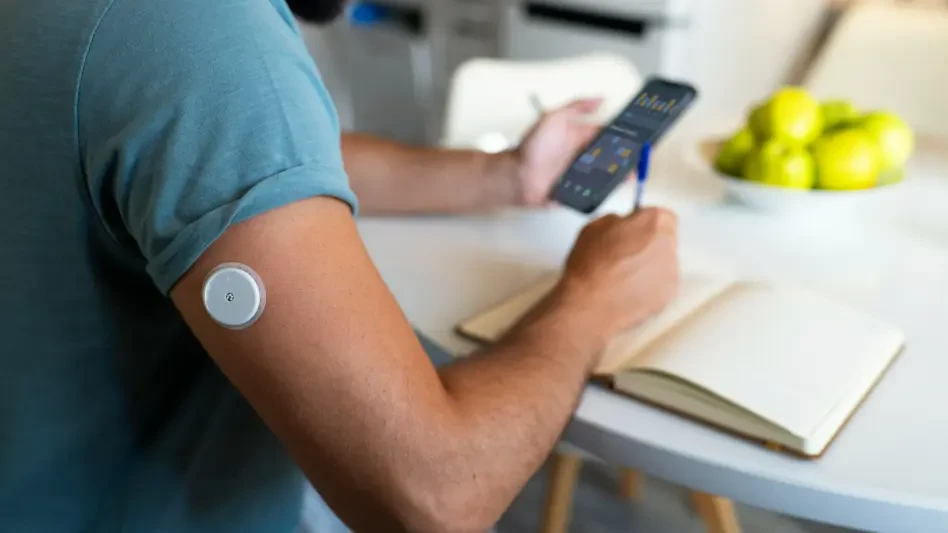Introduction to Diabetes Care Innovations
In a world where over 38 million Americans live with diabetes, the quest for effective, user-friendly management tools has never been more critical, especially as the burden of daily insulin injections and complex treatment regimens often deters patients from adopting advanced therapies, leaving a significant gap in care. This challenge has spurred innovation in the diabetes care technology sector, with companies striving to develop solutions that balance sophistication with simplicity. A notable development in this space comes from Modular Medical, a San Diego-based firm, which has recently submitted its groundbreaking Pivot insulin pump for FDA clearance, potentially reshaping how diabetes is managed for millions.
The industry stands at a pivotal moment, with technological advancements promising to enhance patient outcomes and quality of life. Insulin delivery systems, once cumbersome and expensive, are evolving into more accessible and intuitive devices. This report delves into the current landscape of diabetes care technology, examines Modular Medical’s innovative contribution, and explores the broader implications for the market and patient care.
Overview of the Diabetes Care Technology Industry
Current Landscape and Importance
The diabetes care technology sector plays an indispensable role in addressing one of the most prevalent chronic conditions globally. With diabetes affecting diverse populations, the demand for effective management tools has surged, driving significant investment in research and development. Devices such as insulin pumps and continuous glucose monitors have become cornerstones of treatment, offering precision and convenience over traditional methods like multiple daily injections.
Insulin delivery systems, in particular, have transformed patient experiences by automating dosage and reducing the risk of human error. These technologies not only improve glycemic control but also alleviate the psychological and physical toll of constant self-management. As healthcare systems grapple with rising costs, such innovations are vital for reducing long-term complications and enhancing overall well-being.
The sector’s growth is fueled by an aging population and increasing diabetes prevalence, necessitating scalable and affordable solutions. Companies are under pressure to meet these needs while navigating stringent regulatory frameworks. This dynamic environment underscores the importance of breakthroughs that can bridge accessibility gaps for underserved patient groups.
Key Players and Technological Influences
Major players in the insulin pump market, including Medtronic, Tandem Diabetes Care, and Insulet Corporation, dominate with established products like the MiniMed and Omnipod systems. These companies have set high standards for performance and reliability, creating a competitive landscape for emerging firms like Modular Medical. Each player contributes to a rich ecosystem of innovation, pushing the boundaries of what diabetes management can achieve.
Technological advancements such as microfluidics and tubeless designs have significantly influenced the industry, enabling more discreet and cost-effective devices. Microfluidics, for instance, allows for precise insulin delivery with reduced manufacturing costs, a principle already utilized in Modular Medical’s existing MODD1 pump. Tubeless patch pumps, gaining traction for their ease of use, eliminate the need for external tubing, offering greater freedom of movement to users.
These innovations reflect a broader trend toward miniaturization and patient comfort, reshaping market expectations. As companies integrate smart features like app connectivity and automated dosing, the focus remains on balancing cutting-edge technology with affordability. This convergence of design and functionality is critical for capturing diverse user segments, particularly those hesitant to adopt traditional pumps.
Modular Medical’s Pivot Insulin Pump: A Game-Changer
Innovative Features and Design
Modular Medical’s Pivot insulin pump stands out with its tubeless patch design, tailored specifically for adults new to pump therapy, often termed “almost-pumpers.” This device features a 3 mL removable reservoir, allowing for easy insulin refills without discarding the entire unit. Its design eliminates the need for battery recharging, simplifying maintenance and reducing user burden during daily routines.
A distinguishing aspect of the Pivot pump is its controller-free bolus delivery, enabling users to administer doses directly without additional equipment. This feature, combined with the ability to detach the device for activities like showering, prioritizes flexibility and convenience. The electronic pump also maintains high accuracy and communication capabilities, ensuring reliability without compromising on simplicity.
Affordability remains a core focus, addressing a key barrier for many potential users. By streamlining the two-part design and intuitive interface, Modular Medical aims to lower costs while delivering a differentiated experience. This approach could encourage a significant shift from injections to pump therapy, potentially transforming diabetes management for a wider audience.
Development and Regulatory Timeline
The journey to bring the Pivot pump to market has encountered hurdles, including delays caused by a U.S. government shutdown. However, Modular Medical successfully finalized its FDA submission once operations resumed, marking a crucial milestone. The company anticipates clearance within the coming months, targeting a commercial launch in early 2026.
Beyond the U.S., plans are underway to secure CE mark approval in Europe, expanding the device’s global reach. Additionally, an in-house study with Institutional Review Board approval is set to commence, simulating real-world conditions by delivering insulin to adult participants. This research will provide valuable insights into functionality and user satisfaction, supporting regulatory and market strategies.
The timeline reflects a meticulous approach to ensuring compliance and efficacy. By aligning development with rigorous testing and international standards, Modular Medical demonstrates a commitment to delivering a robust product. These steps are essential for building trust among healthcare providers and patients awaiting this innovative solution.
Challenges in Bringing the Pivot Pump to Market
Navigating the path to commercialization presents several challenges for Modular Medical. Regulatory scrutiny from the FDA demands comprehensive evidence of safety and effectiveness, a process that can be both time-consuming and resource-intensive. Any discrepancies in clinical data or design could delay approval, impacting launch timelines.
Manufacturing scalability poses another obstacle, as producing the Pivot pump at a volume that meets market demand while maintaining quality is complex. Ensuring cost-effectiveness without sacrificing performance requires strategic partnerships and optimized production processes. Market acceptance also remains uncertain, as convincing hesitant users to adopt a new technology involves overcoming ingrained habits and perceptions.
To address these issues, Modular Medical is leveraging user feedback from upcoming studies to refine the device and tailor educational outreach. Building a robust support system for patients and clinicians will be key to fostering confidence in the product. Proactive engagement with payers and providers could further mitigate financial and adoption barriers, paving the way for a smoother rollout.
Regulatory Environment for Insulin Pumps
The FDA clearance process for medical devices like insulin pumps is stringent, designed to ensure patient safety and device reliability. Submissions must include detailed clinical trial data, manufacturing protocols, and risk assessments, all of which are scrutinized for compliance with federal standards. This rigorous evaluation is crucial for protecting public health but can extend development timelines significantly.
Compliance with safety and efficacy benchmarks is non-negotiable, as any lapse could result in severe consequences for users. The FDA also considers real-world performance, often requiring post-market surveillance to monitor long-term outcomes. For Modular Medical, meeting these expectations is paramount to gaining approval and establishing credibility in a competitive field.
International regulatory frameworks, such as the CE mark in Europe, add another layer of complexity with their own set of requirements. Harmonizing efforts across regions demands a deep understanding of varying guidelines and cultural healthcare practices. Successfully navigating this landscape will be essential for Modular Medical to achieve global impact with the Pivot pump.
Future Directions in Diabetes Management Technology
The diabetes care sector is increasingly moving toward patient-centric designs that prioritize ease of use and accessibility. Devices are being developed with simpler interfaces and reduced costs to appeal to broader demographics, including those previously deterred by complexity or expense. This shift reflects a growing recognition that technology must adapt to individual lifestyles to drive adoption.
Innovations like the Pivot pump could redefine market dynamics by setting new standards for affordability and usability. If successful, such products may encourage competitors to accelerate their own low-cost, intuitive solutions, intensifying industry innovation. This competitive pressure could ultimately benefit patients through greater choice and improved offerings.
Looking ahead, the focus on long-term health outcomes will likely intensify, with technologies integrating predictive analytics and personalized dosing algorithms. These advancements promise to further reduce the burden of diabetes management, potentially lowering healthcare costs and complication rates. The trajectory suggests a future where patient empowerment and technological progress go hand in hand, reshaping chronic disease care.
Conclusion and Outlook for Modular Medical
Reflecting on the journey, Modular Medical’s submission of the Pivot insulin pump to the FDA marks a significant moment in the evolution of diabetes care technology. The innovative design and strategic focus on “almost-pumpers” address a critical gap, aiming to make advanced therapy accessible to a wider audience. The efforts to navigate regulatory challenges and plan for a 2026 launch highlight a determined push toward transforming patient experiences.
Moving forward, the next steps should center on leveraging study outcomes to refine the device and build robust educational campaigns for users and clinicians. Establishing strong partnerships with healthcare stakeholders will be vital to ensure reimbursement and distribution channels are in place. Additionally, continuous monitoring of market feedback post-launch can help address any unforeseen challenges swiftly.
The broader implication of this development points to an industry increasingly aligned with patient needs, where affordability and simplicity become as critical as technological prowess. For Modular Medical, sustaining momentum through transparent communication and iterative improvements could solidify its position as a leader in accessible diabetes solutions. This endeavor offers a blueprint for how targeted innovation can drive systemic change in chronic disease management.









